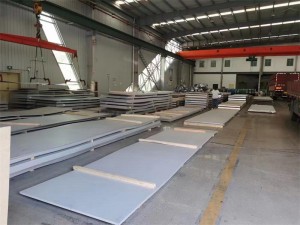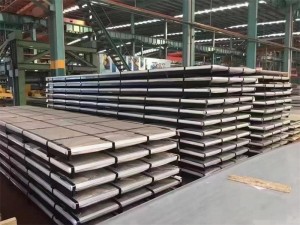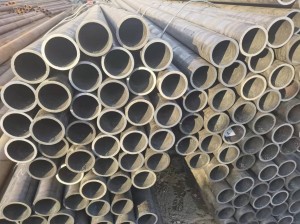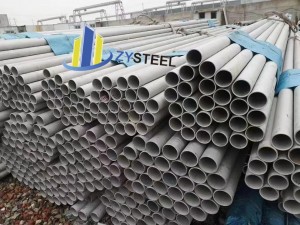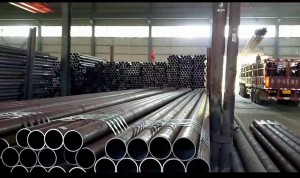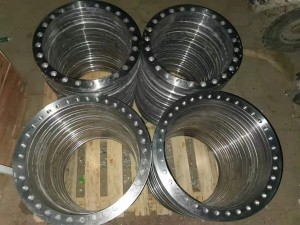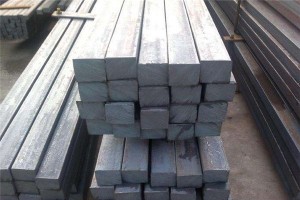316L stainless steel plate
Short Description:
316L stainless steel plate
316L is a stainless steel material grade, AISI 316L is the corresponding American grade, sus 316L is the corresponding Japanese grade. Our unified digital code is S31603, the standard brand is 022Cr17Ni12Mo2 (the new brand), and the old brand is 00Cr17Ni14Mo2, which means it mainly contains Cr, Ni and Mo, and the number indicates the approximate percentage. The national standard is GB/T 20878-2007 (current version).
Chemical composition
Carbon C: ≤0.030
Silicon Si: ≤1.00
Manganese Mn: ≤2.00
Sulfur S: ≤0.030
P: ≤0.045
Cr: 16.00 ~ 18.00
Nickel Ni: 10.00 ~ 14.00
Molybdenum Mo: 2.00 ~ 3.00
Corrosion resistance
316L is widely used in the chemical industry because of its excellent corrosion resistance. 316L is also a derivative steel of 18-8 austenitic stainless steel, with 2 ~ 3% Mo element added. On the basis of 316L, many kinds of steel are also derived, such as 316Ti after adding a small amount of Ti, 316N after adding a small amount of N, and 317L after increasing the content of Ni and Mo.
Most of the existing 316L on the market are produced according to the American standard. For cost consideration, steel mills generally put the Ni content of products as close to the lower limit as possible. American standards stipulate that 316L contains 10 to 14% Ni, while Japanese standards stipulate that 316L contains 12 to 15% Ni. According to the minimum standard, there is a 2% difference between the American standard and the Japanese standard in the Ni content, which is reflected in the price is quite huge, so customers need to see clearly when they buy 316L products, the products refer to ASTM or JIS standard.
The Mo content of 316L makes the steel have excellent corrosion resistance, and can be safely used in the environment containing halogen ions such as Cl-. Because 316L is mainly used for its chemical properties, steel mills have slightly lower surface inspection requirements for 316L (relative to 304), and customers with higher surface requirements should strengthen surface inspection.
Mechanical property
Tensile strength σb (MPa) : ≥480
Conditional yield strength σ0.2 (MPa) : ≥177
Elongation δ5 (%) : ≥40
Reduction rate of cross-section (%) : ≥60
Hardness: ≤187HB; 90 HRB or less; 200 hv or less
Density: 7.98g/cm3;
Specific heat capacity ratio (20℃) : 0.502J/(g*K)

